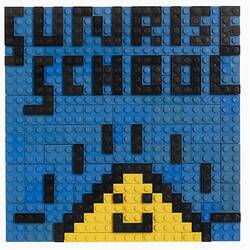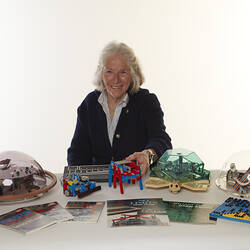Summary
This a digital copy of a U Matic recording produced by Melbourne College of Advanced Education for The Computer Education Group of Victoria. It is one of a series of conversation starters for teachers around micro-computing, and how to access a remote database. Script was written by Liddy Nevile and Scott Brownell. Technical Consultation by Mark Gunther. Camera / Lighting Tony Boyd & Keith Carroll. Edited and directed by John Mitchell and Brian Treanor. Scott Brownell and Sandra Oxley demostrate how to access ACI 's database at Clayton remotely using aussienet. Liddy Nevile and Scott also demonstrates how to access international message/ mail via Minerva and mention it is replacing telex services internationally. They also simulate the ViaTel network.
This audio file forms part of the Sunrise Collection which includes educational robots, software and multimedia recordings of teachers and students exploring new possibilities with computer programming.
More Information
-
Collection Names
-
Collecting Areas
Childhood, Information & Communication, Museum History, Social Spaces & Youth, Working Life & Trades
-
Producer
-
Producer
-
Recording Details
-
Content Summary
00:00:00 - 00:00:27 HH:MM:SS, Text displayed: Classroom Computing - Distant Information,00:00:28 - 00:01:34 HH:MM:SS, Scott Brownell explains development of computing since 1964 including the microcomputer (1973), data storage (floppy discs), and telecommunications.,00:01:36 - 00:02:08 HH:MM:SS, Sandra Oxley describes what the advances will mean for general public.,00:02:26 - 00:12:32, Sandra goes through steps to dial in to remote (ACI) computer using broadcast message.,00:12:45 HH:MM:SS, Liddy and Scott use a computer for electronic mail.,00:16:25 - 00:20:17 HH:MM:SS, Scott talks about the Viatell launch and runs through a mock interface.
-
Format
Digital file
-
Classification
-
Category
-
Discipline
-
Type of item
-
Keywords
Robots, Robotics, Robot Components, Computers, Computer Software, Computer Games, Computer Peripherals, Electronic Learning Aids, Education Programs, Education Kits, Educational Technology, Schools, Technology, Education, Museum Victoria, Museums, microworlds, constructionism

